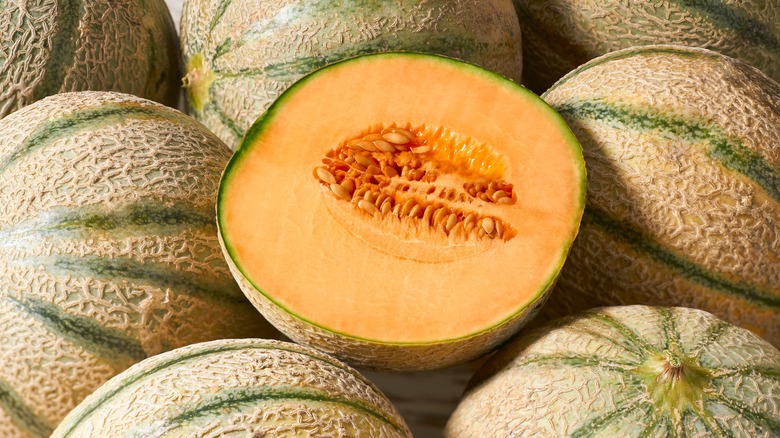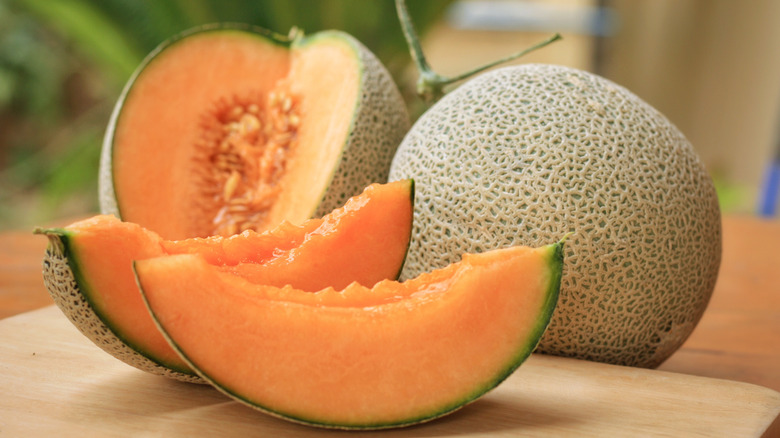There's A Big Cantaloupe Recall – Here's What You Need To Know
If you've purchased cantaloupe recently, you might want to think twice before eating it. The Centers for Disease Control and Prevention recently issued a warning regarding melons that are likely contaminated with salmonella. Around 6,000 cases of unsliced cantaloupes were voluntarily recalled by Eagle Produce LLC of Scottsdale, Arizona.
The potentially tainted cantaloupes by Kandy brand were distributed to retail stores in California, Illinois, Indiana, Iowa, Kentucky, Louisiana, Maryland, Michigan, Minnesota, Missouri, North Carolina, North Dakota, Ohio, South Dakota, Tennessee, Texas, Virginia, West Virginia, Wisconsin, and Washington D.C. between September 5 and16. Affected grocers include Kroger, Sprouts, and Trader Joe's. Other distributors, including Malichita, Vinyard Fruit, Vegetable Company, CF Dallas, Pacific Trellis Fruit, and Trufresh, also recalled the fruit. Some batches were distributed between October 30 and November 10.
The FDA advises consumers to check the packaging to see if they have the recalled cantaloupes and discard them. The products can also be returned to the retailer for a refund. Look out for stickers that say "Rudy" or "Malichita" or have the number "4050."
So far, over 40 people have been hospitalized due to salmonella infection out of nearly 100 cases. Two people have died due to the infection, per Food Safety News. The number is likely to go up in the following weeks, per the CDC.
Better safe than sorry
Cantaloupe recalls due to salmonella risk are nothing new in the United States. The fruits are highly susceptible to contamination due to several factors. As they grow close to the ground, they can be contaminated with salmonella from animals, soil, and other elements. They can also be contaminated during harvest and packaging since the rough surface of the cantaloupe makes it easy for bacteria to stick and even penetrate the fruit through its porous rind.
Since salmonella is easily transferable, even one contaminated fruit can infect the whole batch. If you come in contact with potentially tainted cantaloupe, the FDA recommends washing your hands thoroughly with warm water and soap and disinfecting all the surfaces that may have come in contact with the fruit. To reduce the risk of contracting the bacteria through cantaloupes, refrigerate them after purchase and thoroughly clean them before consumption. Cantaloupes should not be left out at room temperature for over two hours. Look out for these signs to know if your cantaloupe has gone bad.
People who consume salmonella-infected cantaloupe will develop symptoms such as fever, abdominal cramps, and diarrhea. Some also develop a rash. Since the infection can be fatal, consider going to the hospital if you develop any symptoms.

